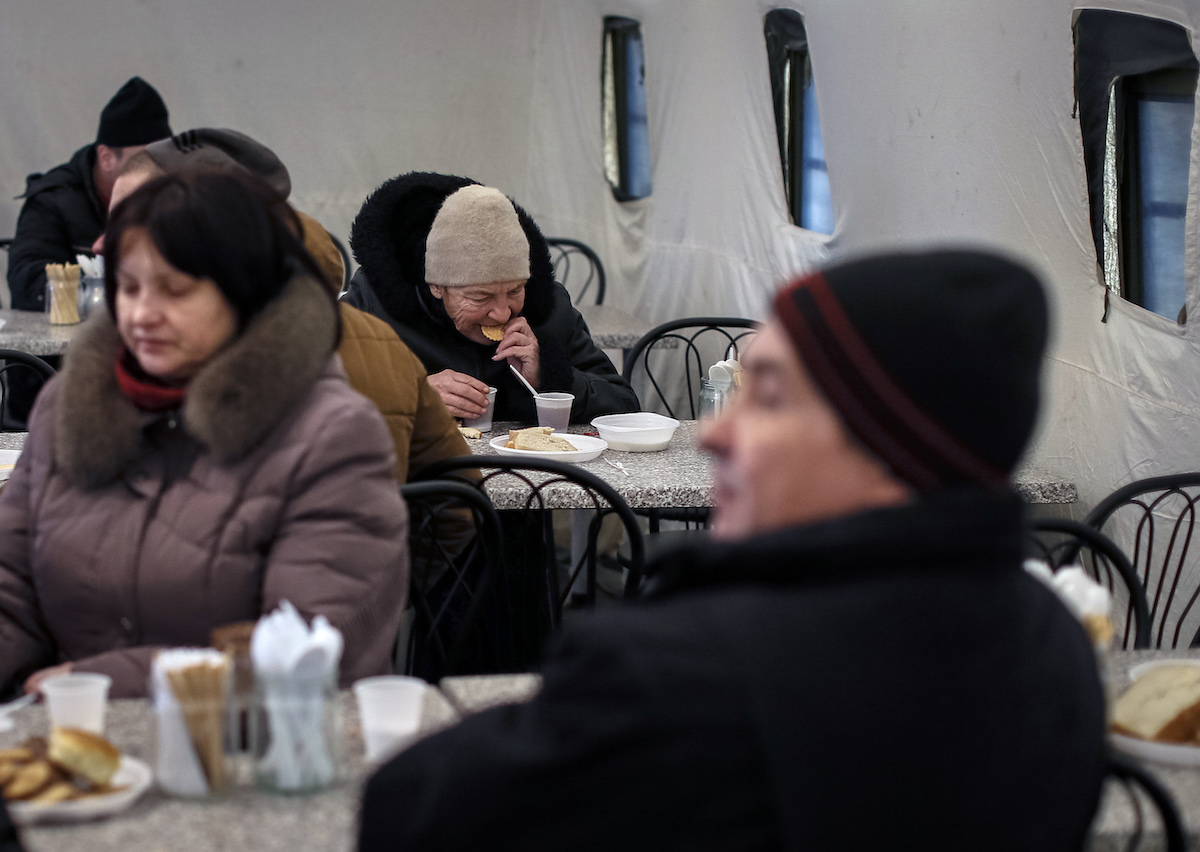Ukraine: dying in lines waiting for pension payouts on the front

Fifty people died in 2018 at checkpoints between the self-proclaimed republics of the Donetsk People’s Republic (DPR) and the Luhansk People’s Republic (LPR) and the territory of Ukraine, controlled by Kiev.
Eight have died since the beginning of 2019. Many are retired. For most of them, the only way to survive is to periodically cross the border in order to receive their Ukrainian pensions.
Ukraine’s Hromadske looked into the matter.
Why do non-combatants have to cross the contact line so often?
Pensioners living in the territories of the self-proclaimed republic are not entitled to their pensions. In order to receive it, they must leave the territory outside of Kiev’s control and receive a status as an internally displaced person, and this status must be periodically confirmed.
Ukrainian law dictates that pensioners cannot remain on uncontrolled territory for more than 60 days a year, and therefore they are forced to travel often between their actual place of residence and the front-line settlements where they are registered.
In the process, they must go through busy checkpoints.
• How Russia finances war-torn Eastern Ukraine through South Ossetia
Some get their pension and go, others wait – some die while waiting.
The mother of Ukrainian artist Alevtina Kakhidze died on 16 January at a so-called DPR checkpoint, presumably of a heart attack. Kakhidze said that her mother was traveling to Kiev-controlled territory in order to ‘check in’ and receive her pension.
Kakhidze says that somebody called her from her mother’s phone, and said that he was an employee of the checkpoint. He told her that her mother began to feel unwell on the bus, and by the time the ambulance came, she no longer had a pulse.
“The man who brought her body said that at the checkpoint, some people pay to get across the line of contact as fast as possible with the help of truckers, and others, with less money, stand in line,” said Kakhidze.
Kakhidze says that she and her mother have created a series of drawings of so-called “pension tourism” – to show what pensioners have to go through in the temporarily occupied territory.
“Pensioners from the uncontrolled territories have been abandoned by the Ukrainian authorities and cannot receive their pensions. Pensioners from uncontrolled territories do not have the right to live there without saying ‘I’m a migrant’. That is, they all have to lie. So did my mom,” Kakhidze says.
Do bans work?
According to the Ukrainian authorities, 1.2 million pensioners live on the territory of the self-proclaimed republics. Of these, Ukrainian pensions are regularly paid to about 700 thousand – those who are registered as internally displaced persons. In total there are around 1.1 million people who only periodically receive a pension, meaning that they have at least once received money after the beginning of the armed conflict in 2014.
Deputy Minister of Social Policy of Ukraine Mykola Shambir says his department is aware that people register as IDPs, but then return home:
“We deliberately agreed not to pay attention to this status. In fact, registration is [just] a mechanism for obtaining one’s pension,” said Shambir.
Daria Tolkach, coordinator of the Right to Protection (R2P) charity organization which monitors the checkpoints, says that virtually all the migration that takes place on the contact line is of people who live on uncontrolled territories.
“Moreover, statistics show that over 60% of the people crossing the checkpoints are over 60 years old. Therefore, it is obvious that people move in order to exercise their rights under the constitution and laws of Ukraine and receive a pension,” added Tolkach.
Human rights advocates suggest that the authorities should not tie the issue of pensions to the status of IDPs, and that pensioners living in uncontrolled territories should receive their pensions either way.
However, the Ministry of Social Policy insists that payments are made at the actual place of registration, and it is impossible to do this in territories not controlled by the government.




















